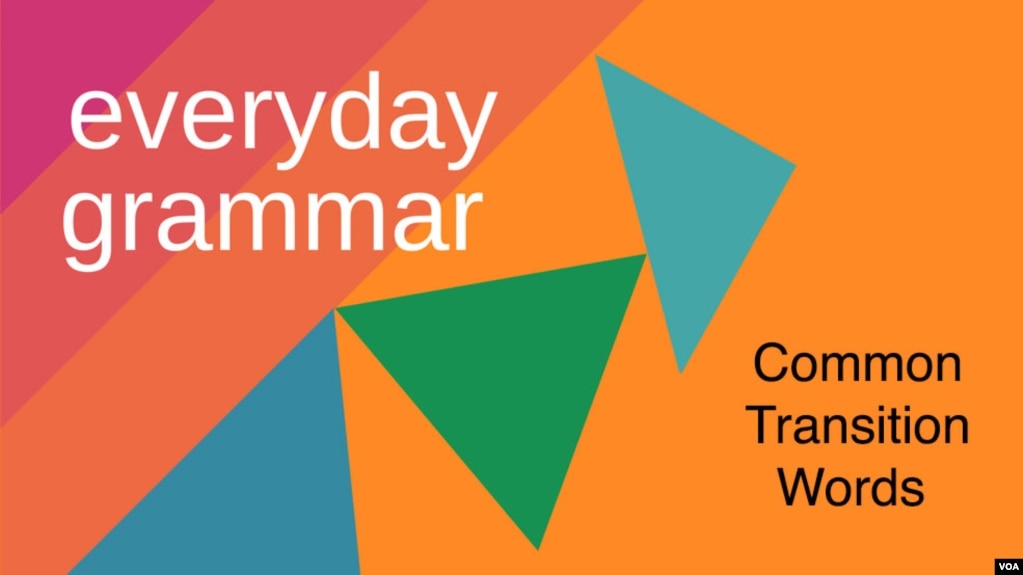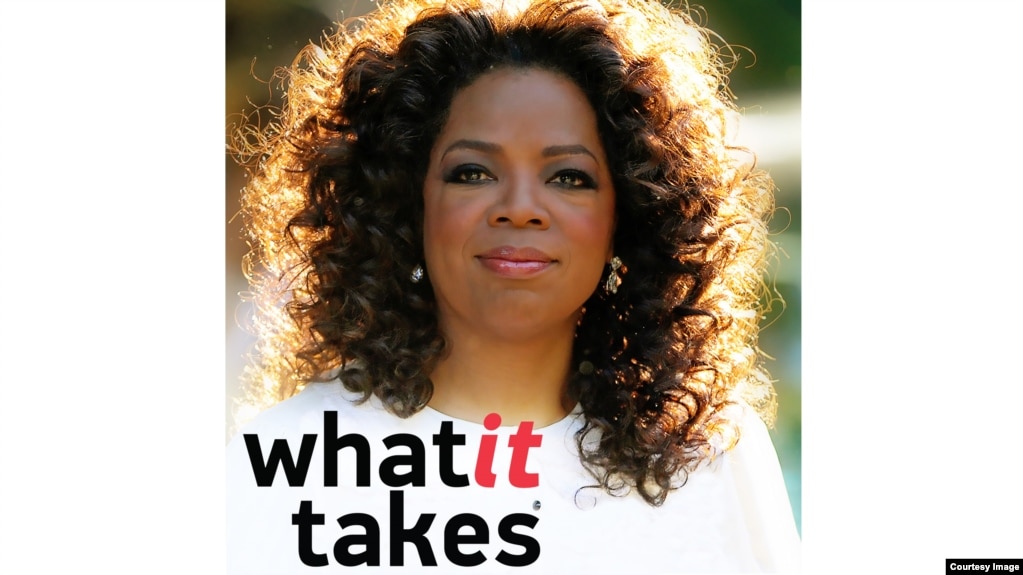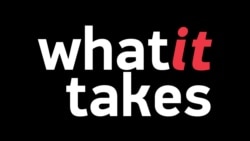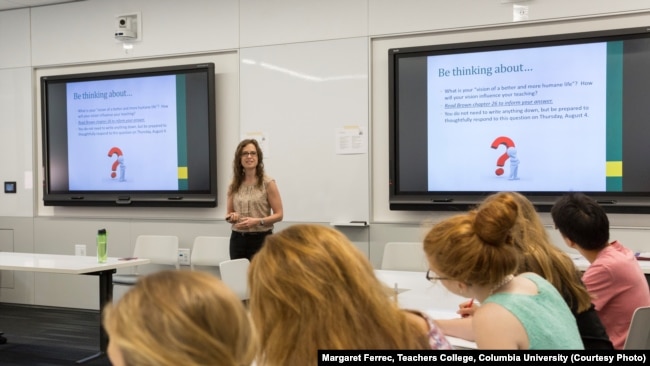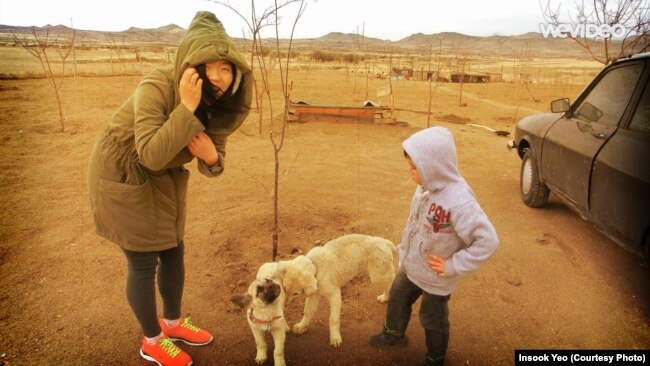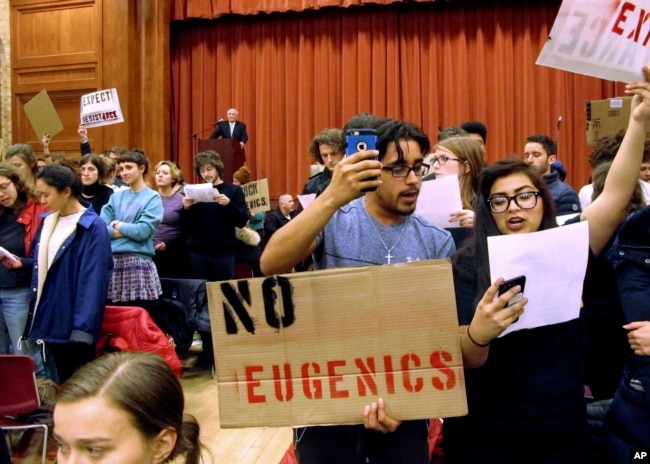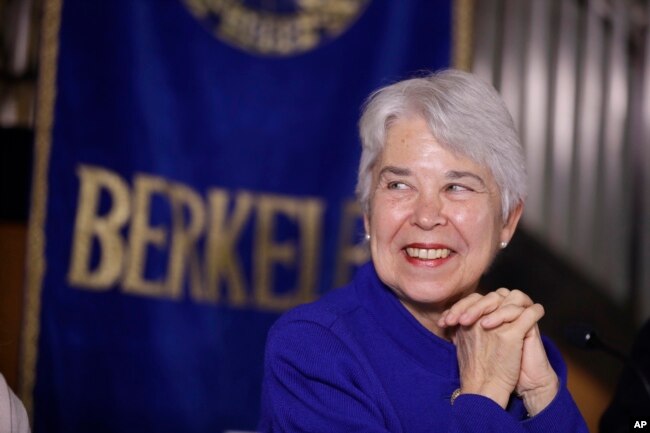00:00:02 OPRAH WINFREY: “Hattie Mae, this child is gifted,” and I heard that enough that I started to believe it.
00:00:08 ROGER BANNISTER: If you have the opportunity, not a perfect opportunity, and you don’t take it, you may never have another chance.
00:00:14 LAURYN HILL: It all was so clear. It was just, like, the picture started to form itself.
00:00:19 DESMOND TUTU: There was no way in which a lie could prevail over the truth, darkness over light, death over life.
00:00:32 CAROL BURNETT (quoting CARRIE HAMILTON): “Every day I wake up and decide, today I’m going to love my life. Decide.”
00:00:35 JOHNNY CASH: My advice is, if they’re going to break your leg once when you go in that place, stay out of there.
00:00:40 JAMES MICHENER: And then along come these differential experiences that you don’t look for, you don’t plan for, but boy, you’d better not miss them.
00:00:52 ALICE WINKLER: This is What It Takes, a podcast about passion, vision, and perseverance from the Academy of Achievement’s recorded collection. On this episode, we bring you the second part of our conversation with Oprah Winfrey. It was recorded in 1991 by the Academy of Achievement. If you haven’t heard Part One, you might want to go back and take a listen first, but to recap, Oprah described her early childhood in Mississippi, her precocious ability to speak in public, her multiple traumas of rape and molestation, and the life lesson she finally learned and feels is her greatest success, the ability to say no.
00:01:30 Now onto the stories of her life in broadcasting, with wisdom, humor, and inspiration sprinkled throughout. It is Oprah, after all.
00:01:39 OPRAH WINFREY: Who really did give me the break? Well, there were several people. I was one of two students picked from each state in 1971 to go to the White House Conference on Youth. I don’t know who sponsored it, but there was this big White House Conference on Youth, and they picked two people from each state all around the world, and so you were put in this whole big convention with all these people from all over the world.
00:02:00 Well, I was being interviewed by a local radio station, and a year later — this was — I was 17 at this time — there was a contest being sponsored in town called the Miss Fire Prevention Contest, and the guy who’d interviewed me at the radio station — his name was John Heidelberg — remembered me. He thought — he just remembered that I’d given him a nice interview and I was a kid, and they needed a teenager, so he said, “Why — what about that girl that was here last year?”
00:02:30 Yes. And so I was all of a sudden representing this radio station in the Miss Fire Prevention Contest, where all you had to do is walk, parade around in an evening gown, answer some questions about your life. You know, it was just — it was one of those little, teeny, tiny beauty pageants. Well, nobody expected me to win the pageant because we were still Negroes at the time, and — I’ve been colored, Negro, black, now I’m African American. So we’re still Negroes, and I was the only Negro in a pageant of all red-haired girls, and it’s the Miss Fire Prevention Contest, so the Lord knows I’m not going to win, so I was very relaxed about it.
00:03:05 I thought, “Well, I got a new gown, and this is great.” So when it came time for the question-and-answer period, they asked, “What would you do if you had a million dollars?” And one girl said, “If I had a million dollars, I’d buy my mom a Frigidaire, my dad a truck.” Someone else, if they had a million dollars, they’d buy their brother Bubba a motorcycle “because he’s always wanted one,” and they’d give it to the poor. And I said — all totally relaxed because I’m not going to win anyway — “If I had a million dollars, I would be a spending fool. I’m not quite sure what I would spend it on, but I would spend, spend, spend. Spending fool.”
00:03:41 Well, I ended up winning, and there was another question about what I would like to do with my life, my career. Well, everybody wanted to be a nurse or a teacher, and I made this big speech about broadcast journalism, mainly because I had seen Barbara Walters that morning on The Today Show. So I thought, “Now, see, what can I be? I can’t be a nurse. Can’t be a teacher because that’s what they were,” so I said I wanted to be a broadcast journalist because I believed in the truth, was interested in proclaiming the truth to the world.
00:04:10 Now, I won the contest. Well, what a shock, Negro me! And that was the beginning of my broadcasting career, because when I went back to the radio station to pick up my Longines watch and my digital clock, they asked me would I like to hear my voice on tape. They said, “Would you like to hear your voice on tape?” Just sort of as a little treat for me. “Come here, and let’s listen to your voice now,” and I started to read. Now I’ve been reading since I was three. They couldn’t believe how well I read, and I was hired there.
00:04:37 Somebody said, “Sit down and read,” and they said, “Come hear this girl read,” and then someone else — and before I knew it, there were four guys standing in the room listening to me read, and I was hired, 17 years old, in radio. At the time, I was still a senior, so I had to only work after school, so I’d finish, get there by 3:30, and I’d do on-the-air newscasts. Well, all my friends just hated me because they’re cutting grass.
00:05:00 And my sophomore year in college, someone heard me on the radio and said, “We heard you on the radio. Would you be interested in working in television?” And I turned them down three times, and the third time… I had a college professor; I said, “They keep calling me to be on television, and I know if I do television I’ll never finish school.” So he said, “Don’t you know that’s why people go to school? So that somebody can keep calling them. You nitwit.”
00:05:28 So I went and I interviewed for the job, and Chris Clark gave me the job. I interviewed for the job in television. Never — I’ve never even been behind-the-scenes of television. I was 19 at the time, so I decided to pretend to be Barbara Walters because that’s how I’d gotten into this in the first place. So I sat there pretending, with Barbara in my head, did everything I thought she would do, and I was hired. It was amazing.
00:05:53 GAIL EICHENTHAL: Funny, you don’t look like Barbara Walters.
00:05:55 OPRAH WINFREY: I don’t look like Barbara!
00:05:56 ALICE WINKLER: That other voice you hear belongs to Gail Eichenthal, who did this interview with Oprah for the Academy of Achievement. Gail followed up by asking whether Oprah felt she’d faced a lot of racism or sexism in her career.
00:06:10 OPRAH WINFREY: I would have to say that I, for the most part, have not been, as far as I know, affected. I — as a matter of fact, it was because of the riots of the ’70s that, I think, they were looking for minorities. They were trying to fulfill all of their quotas in programs, and so I was hired as a token and had to take the heat from my college classmates. I went to an all-black college, with them calling me a token, and I used to say, “Yeah, but I’m a paid token.”
00:06:40 And I recognized that — and at the time, I didn’t even know it was a pun. I was thinking, “Yeah, but they pay — yeah, they pay me,” and was very defensive about it because I’ve always had to live with the notion of other black people saying, “Oh,” for any amount of success that you achieve, they say, “Oh, you’re trying to be white. You’re trying to talk white. You’re trying to be white,” and so forth, which is such a ridiculous notion to me, since you look in the mirror every morning and you’re black, there’s a black face in your reflection.
00:07:11 So I, you know, had to live with that whole thing of, you know, trying to — and it was very uncomfortable for me at first because when I first started as a broadcaster, I was 19, very insecure, thrown into television, pretending to be Barbara Walters, looking nothing like her, and still going to college. So I do all my classes in the morning, from eight to one, and in the afternoon I work from two to ten, and did the six o’clock news, and would stay up and study and all that stuff, you know, until one-, two-, or three o’clock in the morning, and then just start the routine all over again.
00:07:45 And my classmates were so jealous of me that I remember, like, taking my little $115 paycheck and — at the time I thought it was really a lot, but taking $115 and trying to appease them. I would, like, any time anybody needed money, I was always offering, “Oh, you need ten dollars?” Or taking them out for pizza, ordering pizza for the class and things like that, trying to — that whole disease to please.
00:08:09 That’s where it was the worst for me, I think, because I wanted to be accepted by them and could not be because, first of all, I didn’t have the time. They wanted me to pledge, and I didn’t have the time to pledge. I was — I didn’t have the time to be a part of all the other college activities or a part of that whole lifestyle, and it was very difficult for me socially. Really, one of the worst times in my life because I was trying to fit in, in school, and be a part of that culture, but also trying to build a career in television.
00:08:37 ALICE WINKLER: That career would build with jobs as a reporter on local TV and radio, and then as host of a Chicago TV talk show. By the time it went national, it seemed to most of America her career was just exploding out of nowhere. She had also, by the way, just been nominated the year before for an Academy Award for playing Sofia in the movie version of The Color Purple. It was her first movie role, and the film was directed by Steven Spielberg. Oprah says her sudden fame was just an illusion.
00:09:08 OPRAH WINFREY: My first Easter speech in the Kosciusko Baptist Church at the age of three-and-a-half was the beginning, and every other speech, every other book I read, every other time I spoke in public was a building block, so that by the time I first sat down to audition in front of a television camera and somebody says, “Read this,” what allowed me to read it so comfortably and be so at ease with myself at that time was the fact that I’d been doing it awhile.
00:09:39 If I’d never read a book or I’d never spoken in public before, I would have been traumatized by it. So the fact that we went on the air with the Oprah Winfrey Show in 1986 nationally, and people would say, “Oh, but you’re — God, you’re so comfortable in front of the camera. You can be yourself.” Well, it’s because I’ve been being myself since I was 19, and I would not have been able to be as comfortable with myself had I not made mistakes on the air and been allowed to make mistakes on the air and understand that it doesn’t matter.
00:10:14 You know, I — there’s no such thing to me as an embarrassing moment, no such thing. If I tripped and fell, if my bra strap showed, if my slip fell off, if I fell flat on my face, there’s no such thing as an embarrassing moment because I know that there is not a moment that I could possibly experience on the air that somebody else hasn’t already experienced. So when it happens, you say, “Oh, my slip fell off,” and it’s no big deal.
00:10:39 I mean, like, I was on TV the other day and somebody says, “Oh, Oprah, you have a run.” Have you not seen a run before in your life? Well, I get them too. Let me tell you. So, I mean, see, I can’t be embarrassed. I can’t be embarrassed. Now when I first started out, that was not true because I was under the — I was pretending to be somebody I was not. I was pretending to be Barbara Walters, so I’d go to a news conference, and I was more interested in how I phrased the question and how eloquent the question sounded as opposed to listening to the answer.
00:11:11 I was so — which always happens when you’re interested in impressing people instead of doing what you’re supposed to be doing, and it took me awhile. It took me messing up on the air, on — during a live newscast. I was doing a list of foreign countries, and I — there were all these foreign names, and then Canada was thrown in, and I called Canada “Cuh-nah-da,” and I got so tickled that I called — I go, “That wasn’t Cuh-nah-da. That was Canada. Excuse me. That wasn’t Canada. That wasn’t Cuh-nah-da. That was Canada.”
00:11:39 And then I started laughing. Well, it was — it became the first real moment I ever had, and the news director later said to me, “Well, if you do that then you should keep going. You shouldn’t correct yourself and let people know.” Well, I know, well, who’s ever heard of Cuh-nah-da? So that was, for me, the beginning of realizing that, oh, you can laugh at yourself, and you can make a mistake, and it’s not the end of the world. You don’t have to be perfect.
00:12:04 Biggest lesson for me for television. Didn’t matter. “Oh, sorry. Bra strap’s showing.”
00:12:08 ALICE WINKLER: But Oprah’s newfound desire to be herself wasn’t a big hit with news management, that and her reluctance to thrust a mike into the faces of people in crisis just for a story.
00:12:20 OPRAH WINFREY: I only came to co-host a talk show because I had failed at news, and I was going to be fired, and the news director was paying me 22,000 a year. God only knows what my co-anchor was making. But — was paying me 22,000 a year, and they thought they were paying me too much money to only just do news stories, and so I had been taken off the six o’clock news and was put on the early morning, like, five-thirty cut-ins, and they tried to convince me at the time — they said, “You know, you are — you’re so good that you need your own time period, so we’re going to give you five minutes at five-thirty in the morning.”
00:13:03 And I was devastated because up until that point I had sort of cruised. I really hadn’t thought a lot about my life or the direction it was taking. I just — because I had happened into television, happened into radio, sort of happenstanced. I don’t believe in luck. I think luck is preparation meeting opportunity, but I felt like I had somewhat prepared myself, but that I had happenstanced into it.
00:13:30 So I thought, okay, I was working in Nashville, and so I moved to Baltimore, and now I’ll do this for a while, and then I don’t know what I’ll do. And so when I was called in and put on the edge of being fired and certainly demoted and knew that firing was only a couple weeks away, I was, like, devastated. I was 22 and, I mean, embarrassed by the whole thing because I’d never failed before.
00:13:54 And it was that failure that led to the talk show. Because they had no place else to put me, they put me on a talk show one morning, and the — I’m telling you, the hour — I interviewed — my very first interview was the Carvel Ice Cream Man and Benny from All My Children. Never forget it. And I came off the air thinking, “This is what I should have been doing,” because it was like breathing to me, like breathing. You just talk.
00:14:21 ALICE WINKLER: It came easy and struck a remarkable chord with audiences and guests, who opened up to her, just as she opened up to them. The press, however, was occasionally a little less forgiving, but Oprah told interviewer Gail Eichenthal that her critics have helped her to get better.
00:14:39 OPRAH WINFREY: Now I take criticism very seriously. There have been — I can’t say that I’m one of those people who does not read criticism, because I do, and if someone criticizes something and it strikes a nerve with me, I will then move to correct it. I mean, I have written critics who have said things that I thought were very valid. Recently someone criticized us for airing a show on mothers who had gone through postpartum depression and had killed their children, and they were saying that the show should not have aired in the afternoon because there were children watching.
00:15:11 And I have — I mean, I absolutely agree with that. I think that’s a very valid point. We should have considered that. That’s one of the things I did not think about. I’m thinking that I’m going to help all these mothers who are going through this, but that person was absolutely right, and I’ve reached a level of maturity in this work myself. There was a time when I first started out that I would say I was far more exploitive. You just put a person on for the purpose of having — I wouldn’t do that anymore.
00:15:34 I was in the middle of a show with some white supremacist skinheads, Klu Klux Klan members, and in the middle of that show I just had a flash. I thought, “This is doing nobody any good. Nobody. This is — ” I mean, and I had rationalized the show by saying, “Oh, people need to know that these kinds of people are out here.” I won’t do it anymore. I just won’t do it. There are certain things — I won’t do Satanism of any kind, any kind of Satan worship, I won’t do — I no longer want to give a platform to racists. I just don’t, because I think no good can come of it.
00:16:07 And so if you don’t know that it exists, I’m sorry, you won’t hear it here. But that’s growth for me. I did a show — I taped a show last year with a guy who was a mass murderer who killed 80 people, and I did the whole interview, and I had the families on of some of the people he killed. In the middle of it I thought, “I shouldn’t be doing this. This is not going to help anybody. It’s a voyeuristic look at a serial killer, but what good is it going to do anybody?” And we didn’t air it.
00:16:34 GAIL EICHENTHAL: You obviously are in the public eye, and in a way that most people cannot relate to, and I’m just wondering how you’ve adjusted to that, to the fact that when Oprah sneezes, it’s usually printed in People magazine, you know, or whatever…
00:16:48 OPRAH WINFREY: Oh, it’s certainly “Oprah Eats a Piece of Bacon.” I don’t know about sneezing, but if she eats a piece of bacon, it’s an — I think I’ve adjusted pretty well. I think I’m really — actually I’m probably one of the most balanced people I know to live under such a microscope, I think. And I think that you have to put it all in perspective and understand who you really are, and who I really am is not some person who’s, you know, just on television every day.
00:17:12 That is something that I do, and what I think is important is for people to — not to look at my life or anybody else’s life, particularly celebrities, because I think adoration is unhealthy. And, you know, when you look at the list of people that students choose to admire in this country, I think that there are so many people who do such incredible things! Incredible things. I mean, I was — you know, last year I met the guy who split the neutrons in two, and they do things, you think, “My God.”
00:17:12 They do things to atoms that you can’t even pronounce, and I think, “Well, you know, wouldn’t it be wonderful if those kinds of people got publicity. Wouldn’t it be wonderful if we paid attention to some of the more humanitarian things that are going on. Things that are really of value,” and I think just because, you know, you can do a video and you can dance really well or you can sit on a talk show and you can talk to people, that is not necessarily to be held in the highest of esteem, you know, because that isn’t what makes life meaningful. It really is not.
00:18:17 GAIL EICHENTHAL: What characteristics do you think are most important for having a fulfilling life? And I’m not going to say successful because I really don’t mean financially successful. But I mean a fulfilling life, successful life, in a profession.
00:18:30 OPRAH WINFREY: I think the most important thing to get ahead falls back to what I truly believe in, and then that is the ability to seek truth in your life. You can be pursuing a profession because your parents say it’s the best thing. You can be pursuing a profession because you think you’ll make a lot of money. You can be pursuing a profession because you think you’re going to get a lot of attention. None of that will do you any good if you’re not being honest with yourself, and the honesty comes from — your natural-born instinct will tell you when you’re doing something, whether or not this feels right.
00:19:01 You feel a sense of accomplishment and a fulfillment and worthiness to the world in such a way that you know you’re doing the right thing. You don’t have to ask anybody. When you’re doing the right thing you don’t have to say, “Do you think this is okay?” It’s like — and it works on every level, whether or not you’re going to a party or you’re choosing a dress or you’re choosing a friend. If you ever have to say, “Do you think this is okay?” — chances are it is not, because that’s your instinct trying to get you to ask yourself that question: “Maybe this isn’t okay?”
00:19:35 And so from the very first day I did my very first talk show, I felt — I knew it. I knew it was the right thing to do. I felt the same thing about acting, too, only I was so terrified that it was a little more difficult for me.
00:19:52 GAIL EICHENTHAL: What’s the turn-on for you in acting?
00:19:55 OPRAH WINFREY: For me, the turn-on is the ability to express another person’s life. I think if you can internalize and then manifest externally the essence of another being, that is the ultimate in understanding. What it takes to take somebody else’s life, make it your own, and put it out there is the ultimate — you understand things about people that you could never imagine. You — it’s like, almost for a while getting to live somebody else’s life.
00:20:33 The most powerful scene in The Color Purple, for me, was the scene where Sofia walks through the cornfield and proclaims herself to Celie, defines and proclaims herself, where she says, “All my life I had to fight. I had to fight my cousins. I had to fight my brothers. I had to fight my uncles, but I ain’t never thought I had to fight in my own house.”
00:21:00 I did that scene in one take because it was the essence, I thought, of my life. And very liberating to live it through Sofia because, at the time that I spoke it, I wasn’t there yet, because what she is saying is, “I fought people all my life, and I’m not going to fight in my own house anymore, in my own space anymore. I’m going to have what I deserve.” And it’s taken me awhile to get to where Sofia was, but it was so liberating.
00:21:34 It was all, I think, a part of the process of growth for me to recognize it can be done.
00:21:40 ALICE WINKLER: And the person who gave Oprah that opportunity to act for the first time, to embody characters, and to continue her process of healing from childhood trauma, was none other than Quincy Jones, music and film producer extraordinaire.
00:21:56 OPRAH WINFREY: Quincy Jones discovered me, and it’s so interesting to me because when I was working as a television newswoman in Baltimore — and, really, all I wanted to do was be an actress, but I was doing television, and I felt at the time, “Well, I can’t quit this job because this is what everybody else wants to do, and if I quit this job, what am I going to do?” And I was going to a speech coach at the time that the station had sent me to.
00:22:24 They — you know, they — the broadcasting school, they sent everybody to the same woman, and I was telling her, “You know, I really don’t want to do this. What I really want to do is act.” And she says, “My dear, you don’t want to act because if you wanted to act you’d be doing it. What you want to be, my dear, is a star, because if you wanted to act, you’d be waiting tables in New York. You’d be — ” and I thought, “Now why am I going to wait tables if I’m already working in TV?” So I said, “Well, what I think is going to happen is I will be discovered, because I want it so badly somebody’s going to have to discover me.”
00:22:54 And she said, “You just dream. You dream. You’re a dreamer.” So when it happened, I called her up. I said, “You will not believe this! I got discovered!” And it really was a discovery. It’s like one of those Lana Turner stories, only it wasn’t a drugstore. He was in his hotel room, saw me on TV. It was unbelievable. So the interesting thing about that is that I truly believe that thoughts are the greatest vehicle to change, power, and success in the world.
00:23:28 Everything begins with thoughts. I mean, the chairs that we’re sitting in, the room that we’re in, all started because somebody thought it. So I thought up The Color Purple for myself. I know this is going to sound strange to you. I read the book. I got so many copies of that book. I passed the book around to everybody I knew. If I was on the bus I’d pass it out to people. And when I heard that there was going to be a movie, I started talking it up for myself. I didn’t know Quincy Jones or Steven Spielberg or how on earth I would get in this movie.
00:24:01 I’d never acted in my life, but I felt it so intensely that I had to be a part of that movie. I just — I really do believe I created it for myself.
00:24:10 ALICE WINKLER: After spending so much time listening to this interview with Oprah, it is not hard to believe that she willed herself into a part in The Color Purple, that she willed herself into becoming the preeminent talk show host of all time, and everything that came after for her: the studio, the magazine, the TV network, and the tremendous wealth. Oprah Winfrey is one of the wealthiest people in America. Yet still, she said…
00:24:37 OPRAH WINFREY: What other people view as successful is not what my idea of success is, and I don’t mean to belittle it at all. I think it’s really nice to be able to have nice things. What material success does is provide you with the ability, I think, to concentrate on other things that really matter, and that is being able to make a difference not only in your own life but also in other people’s lives. That’s really all it’s good for. It’s because you don’t — you no longer have to focus your attention on how you’re going to pay your car note and whether or not you’re going to sign your last name so that when the check gets there, they can send it back to you, and you can say, “Oh, forgot to sign it.”
00:25:13 You know, you don’t have to play those games anymore, so you really have the time and the attention to focus on other things. And the big question for me in my life is, now that I have achieved some material success, is what do I do with it? How do I use this to make a difference?
00:25:32 GAIL EICHENTHAL: And?
00:25:33 OPRAH WINFREY: And, for me, education is about the most important thing, because that was — that is what liberated me. Education is what liberated me. The ability to read saved my life. I would have been an entirely different person had I not been taught to read when I was, at an early age. My entire life experience, my ability to believe in myself, and even in my darkest moments of sexual abuse and being physically abused and so forth, I knew there was another way.
00:26:11 I knew there was a way out. I knew there was another kind of life because I’d read about it. I’d read about it. I knew there were other places, and there was another way of being, and so it saved my life. So that’s why I now focus my attention on trying to do the same thing for other people.
00:26:37 ALICE WINKLER: Oprah Winfrey talking to the Academy of Achievement in 1991. Thank you for listening. Next time you find yourself looking for a shot of inspiration or some great life stories from another towering figure, visit us again. I’m Alice Winkler. This is What It Takes. And I can’t resist leaving you with one last little clip of Oprah talking about one of her favorite things. Who knows? I just like to think maybe it’s where the idea for her famous segment started.
00:27:12 OPRAH WINFREY: I love bubbles. Now that’s the one big luxury I’ve given myself, is that now that I’ve attained some material success, I will use an entire half a bottle of bubble bath at one time, and I’m really particular about the kind of bubbles too. Like, I don’t want the kind that drip down off of your arm, poor quality bubbles. I like the kind that covers your arm and stays
